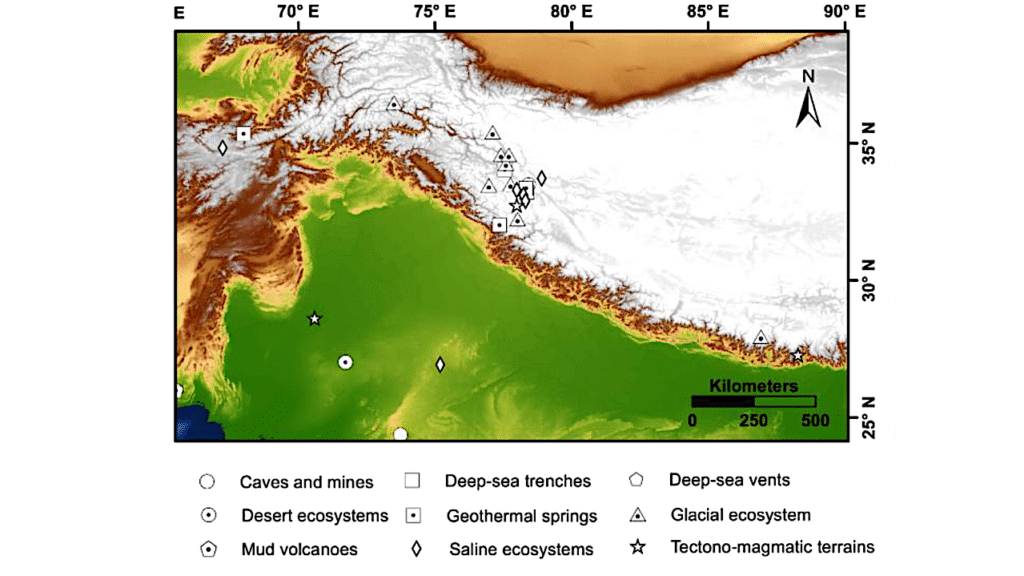AAS Awards Laboratory Astrophysics Prize to NASA Goddard Extraterrestrial Ice Scientist

The American Astronomical Society (AAS) has awarded the 2023 Laboratory Astrophysics Prize to Dr. Reggie Hudson of the Cosmic Ice Laboratory at NASA’s Goddard Flight Center in Greenbelt, Maryland.
his prize was announced at the 241st annual meeting of the AAS in Seattle, Washington. It is given in recognition of his contributions to the understanding of the chemistry of ices in the interstellar medium and in the Solar System.
“Our lab work spans planetary science, astrophysics, and astrobiology. Therefore, I can’t help but think that this announcement reflects well on all three areas of NASA science and especially on Goddard and on Code 690 [The Solar System Exploration Division], “ said Reggie Hudson, lead scientist in the Cosmic Ice Laboratory at Goddard.
For nearly four decades, Hudson has been a leading figure in the infrared spectroscopy and radiation chemistry of extraterrestrial ices. Hudson was one of the first to show that upon energetic processing of ice analogues, new species can form through solid-state reactions and that they can be identified and quantified by infrared spectroscopy. He has spent many years developing a library of the optical properties and spectroscopic features of astronomical ice analogues, which have found important applications to space- and ground-based observations. This work will be great service to the astrochemistry community as it aims to identify ice features from NASA’s James Webb Space Telescope observations.
Hudson’s work was instrumental in establishing, after years of controversy, that the mysterious infrared feature at 4.62 microns detected towards high-mass young stellar objects was in fact due to the cyanate anion, OCN-. Lab-based predictions of interstellar ketenimine and ethylene glycol were soon verified by radio astronomers.
More recently, Dr. Hudson’s research has continued to focus on generating infrared band strengths and optical constants of astronomical ices, establishing trends among low-temperature reaction paths, examining ices of Pluto and Titan’s atmosphere, documenting radiolytic lifetimes of amino acids and nucleobases, and even studying hydroxylation in lunar regolith samples returned by the Apollo missions.
Hudson received his undergraduate degree from Pfeiffer University and his doctorate in physical chemistry from the University of Tennessee. He was a postdoctoral researcher at University College London and a Professor of Chemistry at Eckerd College (Florida) for 30 years. In 2009, Hudson moved to Goddard to lead the Cosmic Ice Laboratory. While at Goddard, he has held the positions of lead scientist, associate chief of the Astrochemistry Laboratory, and acting chief of the Planetary Systems Laboratory. He is a member of AAS, the American Geophysical Union, Sigma Xi, and the American Chemical Society, and he served as the chair of the American Chemical Society’s Astrochemistry Subdivision (2016–2017). He also serves on the editorial board of the journal Astrobiology.
The Cosmic Ice Laboratory group is part of the Astrochemistry Laboratory in the Solar System Exploration Division at Goddard. The Cosmic Ice Lab specializes in studying the spectra, the chemistry, and the physical properties of ices relevant to comets, icy satellites and planets, and the coatings of dust grains in the interstellar medium. Although many cosmic ices are dominated by H2O, they also contain “prebiotic” molecules such as CO, CO2, CH4, NH3, and CH3OH. In studying these molecules, the scientists are probing the early, ancient chemistry that eventually led to the origin of life.
The Astrochemistry Laboratory conducts remote sensing, in situ, and direct sample-return measurements, as well as observations, modeling studies, and laboratory experiments to better understand chemical processes in astrophysical and planetary environments. Laboratory personnel also develop X-ray, gamma ray, and neutron instrumentation for planetary missions.
The AAS Laboratory Astrophysics Division (LAD) advances understanding of the universe through the promotion of fundamental theoretical and experimental research into the underlying processes that drive the cosmos. Annually, AAS LAD awards three prizes, each of which recognizes outstanding theoretical or experimental research in laboratory astrophysics: Laboratory Astrophysics Prize, Early Career Award, and Dissertation Prize. The Laboratory Astrophysics Prize is presented to an individual who has made significant theoretical or experimental contributions to laboratory astrophysics over an extended period of time.
The AAS established in 1899 and based in Washington, D.C., is the major organization of professional astronomers in North America. The mission of the AAS is to enhance and share humanity’s scientific understanding of the universe.
Astrobiology








